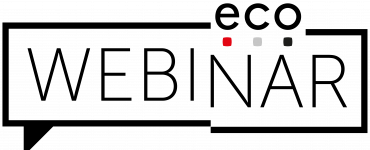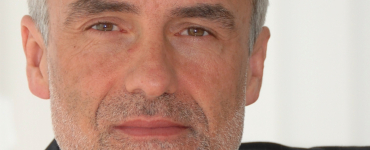The Internet is about to open up in exciting new ways. In 2026, the application period for a new wave of domain extensions, known as new gTLDs, will begin. This will create powerful opportunities for businesses, communities, and individuals to stand out online. Imagine web addresses that are shorter and more meaningful, and that instantly tell your audience who you are and what you stand for. This isn’t just a technical update; it’s an opportunity to build stronger brands, safer spaces, and more inclusive digital identities, including those in different scripts and languages. In a series of interviews, we speak with the people shaping this next chapter of the Internet so you can learn why the 2026 new gTLD program matters to you.
In this eco interview, Martin Küchenthal, Managing Director of LEMARIT, explains why a stable and secure digital brand identity is so important. He also talks about current dangers in the digital space and how artificial intelligence can make the work of specialists easier.
1. Please briefly explain what LEMARIT does and from which environment/sector your customers come from. What requirements do your customers typically bring to you?
LEMARIT specialises in the comprehensive support and protection of digital brands. We help companies strategically manage their domain portfolios, protect their digital brands and secure their DNS and email-related infrastructure.
Our customers are mostly global companies with strong brands, , which naturally means complex requirements for their domain portfolios and their protection. This always involves strategic consulting and operational implementation at the highest technical level. In short, when it comes to digital brand identity, security and visibility, we are a sparring partner, strategist and technical service provider all in one.
2. What risks/dangers do companies face if they don’t adequately protect their digital brands? Are there any legal consequences in addition to financial ones?
Digital brands are a key asset and are therefore vulnerable to misuse. Anyone who does not actively protect their brand rights, domains or technical infrastructure leaves themselves open to phishing, spoofing or trademark infringements by third parties.
This can quickly lead to high financial losses – but also to reputational damage, a breach of trust among customers or even legal consequences, such as data breaches or compliance violations.
Today, protecting digital brands is not a “nice to have” but an essential measure for security and brand management.
3. To what extent do your solutions help not only to protect your customers’ digital brands, but also to strengthen them?
Our solutions not only protect – they also create strategic added value. Consistent domain management, clearly defined responsibilities, stringently monitored brand activities and clean technical structures all create trust, performance and scalability. And, last but not least, our solutions save resources in companies because they simplify processes and mitigate risks at an early stage.
Ultimately, it’s always about ensuring that digital brands are not only secure, but also strong, visible and ready for the future.
4. In your opinion, which technology trend has the potential to bring about sustainable change in the economy and society in the coming years?
The answer is probably not surprising: artificial intelligence. It will be present in virtually all areas of life and work, simplifying and accelerating processes and automating many tasks. But that is precisely where I see the opportunity. The more AI takes over, the more important specific expertise, contextual understanding, dedication to the task at hand and genuine cooperation with customers and colleagues will become. As specialists, we will be needed to fill exactly these gaps.
5. How did the decision to become an eco member come about? How do you expect your membership in the association to support your work?
LEMARIT has been a member of eco for over eleven years now – and we do so out of conviction. The initial impetus came from personal exchanges with Thomas Rickert and Lars Steffen at various events. It quickly became clear how valuable the community and network within eco are.
I particularly value the open dialogue with other member companies and the high-quality events that the association regularly organises. In addition, it’s a great enrichment for us to collaborate in the Names & Numbers Steering Committee – here we can actively contribute our expertise and help shape developments in the domain environment.
Company website: https://www.lemarit.com/
Company LinkedIn page: https://www.linkedin.com/company/lemarit/about/
Explore the new gTLD Provider Directory and connect with trusted providers: https://international.eco.de/topics/names-numbers/new-gtld-provider-directory/




